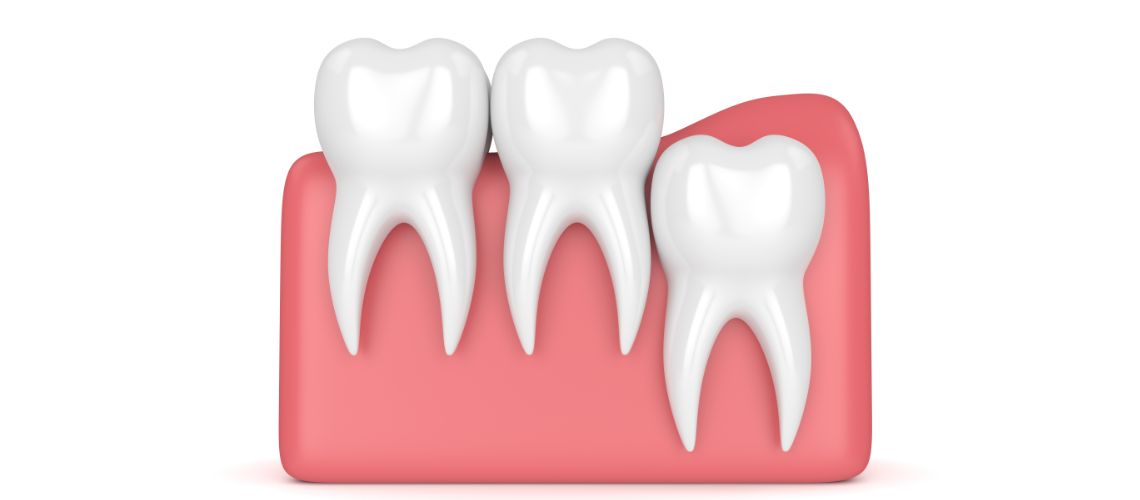Is your throbbing jaw due to a wisdom tooth impaction, where the tooth gets stuck trying to erupt, or a full-blown infection causing havoc in your mouth? Prepare to chuckle your way through tales of swollen cheeks, rogue molars, and the occasional bout of wisdom teeth-inspired wisdom. As we delve into the signs and symptoms of these dental conundrums, you’ll discover that even the most daunting dental dilemmas can be tackled with a smile (and maybe a dental appointment or two).
Wisdom teeth, those third molars erupting in your late teens or early twenties, can sometimes cause problems. While some wisdom teeth erupt without issue, others become impacted (stuck) or infected, leading to pain, swelling, and other unpleasant symptoms. Knowing the difference between impaction and infection is crucial for seeking appropriate treatment and maintaining good oral health. This blog will be your guide to detecting the signs and symptoms of both wisdom tooth impaction and infection, helping you identify the source of your discomfort. Join this expedition as we navigate the labyrinth of dental intricacies, all while keeping an eye out for the best wisdom teeth removal Colleyville.
Wisdom Tooth Impaction
When a wisdom tooth doesn’t have enough space to erupt fully or properly, it becomes impacted. This can happen because the jawbone isn’t large enough to accommodate all four wisdom teeth, or the tooth may be angled incorrectly.
Signs and Symptoms of Impaction:
- Pain and discomfort: This is the most common symptom of an impacted wisdom tooth. The pain can be constant or come & go and may be dull or sharp.
- Swelling in the gum tissue around the impacted tooth: This can make the jaw feel sore and tender.
- Difficulty opening your mouth wide: This can occur if the swelling or the position of the impacted tooth limits jaw movement.
- Redness and irritation of the gum tissue: The gum tissue around the impacted tooth may appear red and irritated.
- Bad breath or a bad taste in your mouth: Food particles can get trapped around the impacted tooth, leading to bad breath and a bad taste.
Wisdom Tooth Infection
An impacted wisdom tooth is more prone to infection if bacteria become trapped around the tooth and gums. This can happen if there’s a partial eruption, creating a pocket for food debris to accumulate.
Signs and Symptoms of Infection:
- Severe pain and throbbing: This is the most significant difference from impaction. Infected wisdom teeth often cause intense, throbbing pain that can radiate to the ear, jaw, or head.
- Swelling of the face and jaw: The swelling may be more pronounced and extend beyond the gum tissue to the cheek or jawbone.
- Fever and chills: A fever is a common sign of infection and can be accompanied by chills.
- Difficulty swallowing: The swelling and pain may make it difficult to swallow comfortably.
- Swollen lymph nodes in the neck: The lymph nodes may become swollen and tender as the body fights the infection.
- Pus discharge from the gum tissue: In some cases, pus, a white or yellow discharge, may drain from the gum tissue around the impacted tooth.
It’s important to note that not everyone will experience all of these symptoms.
The severity of symptoms can also vary depending on the individual and the extent of the impaction or infection.
When to See a Dentist
If you’re experiencing any of the signs and symptoms of wisdom tooth impaction or infection, it’s important to see a dentist as soon as possible. Early diagnosis and treatment can help prevent complications, such as damage to surrounding teeth, jawbone infection, or nerve damage.
Treatment Options
For cases of severe impaction where the wisdom tooth is causing significant pain or affecting nearby teeth, wisdom teeth removal Colleyville may be advised. This surgical procedure involves the extraction of the impacted tooth under local anesthesia, providing relief from discomfort and preventing further dental issues. Depending on the severity of the impaction or infection, your dentist may recommend one of the following treatment options:
- Monitoring: If the wisdom tooth is impacted but not causing any problems, your dentist may recommend monitoring the situation with regular checkups.
- Antibiotics: If there’s an infection, your dentist may prescribe antibiotics to clear the infection.
- Pain medication: Over-the-counter pain relievers can help manage pain and discomfort.
- Wisdom tooth extraction: This is the most common treatment for impacted or infected wisdom teeth. In most cases, an oral surgeon will perform the extraction.
In summary, wisdom teeth can be a source of trouble, but recognizing the difference between impaction and infection empowers you to seek timely treatment and avoid complications. Remember, this guide is for informational purposes only. If you’re experiencing any persistent pain, swelling, or other concerning symptoms of wisdom tooth impaction or infection, don’t hesitate to schedule an appointment with your dentist for an accurate diagnosis and personalized treatment plan for wisdom teeth removal in Colleyville. With prompt attention and proper care, you can address wisdom tooth-related issues effectively and safeguard your oral health for the long term.

